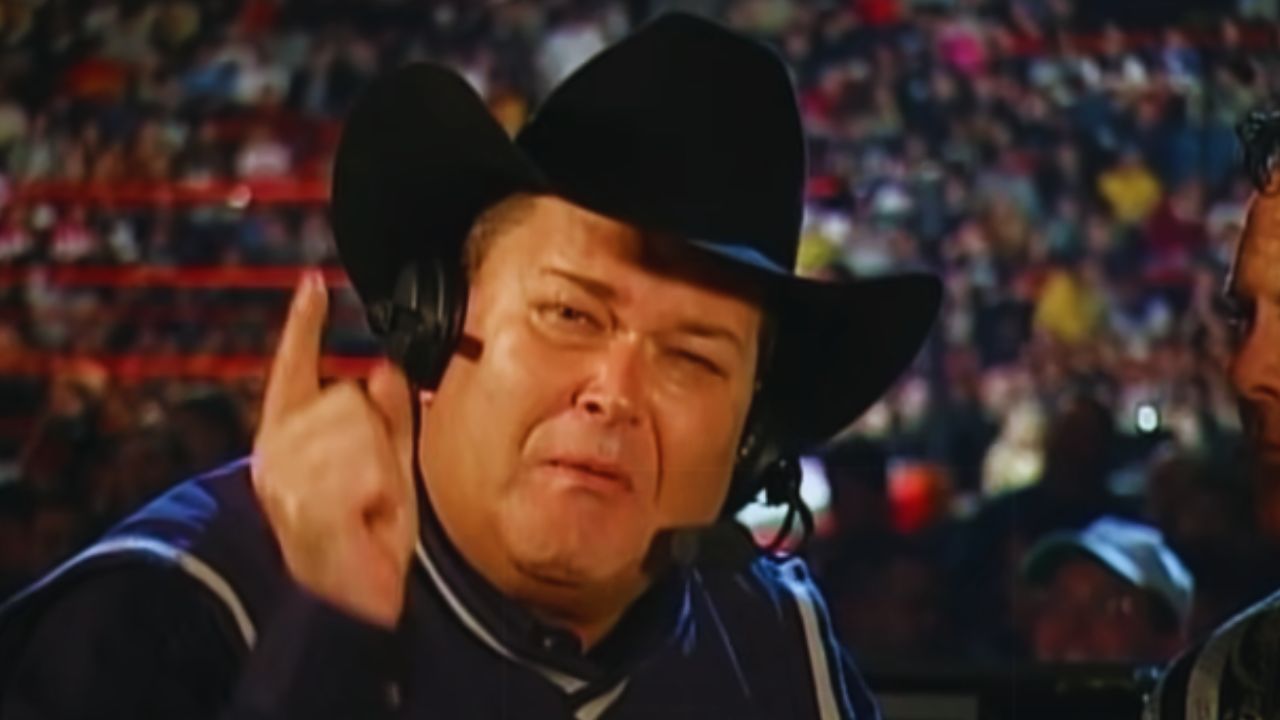Jim Ross Reflects on Tough Decision to Fire Future WWE Star Umaga
In a recent episode of his popular podcast, Grilling JR, Jim Ross, the previous WWE Head of Talent Relations, revisited a difficult bankruptcy from his tenure: the firing of Eddie Fatu, better acknowledged to wrestling lovers as Umaga. The communique sheds light at the complexities and emotional weight behind this arguable decision, supplying a unprecedented glimpse into the demanding situations faced by using the ones coping with the world of professional wrestling.
Eddie Fatu’s adventure with WWE started in 2002, wherein he first appeared under the hoop call Jamal. Partnering along with his cousin Rosey, the duo fashioned “Three-Minute Warning,” a call coined by using WWE govt Eric Bischoff, who famously gave his expertise an insignificant three mins to seize his attention earlier than his enforcers might intrude. The team quickly made waves, showcasing their simple air of secrecy and in-ring prowess.
However, Fatu’s promising WWE career turned into abruptly reduce brief in June 2003 following a bar altercation. The unenviable mission of delivering the news to Fatu fell to Jim Ross, who at the time held the position of Head of Talent Relations. During his podcast, Ross described the ordeal, emphasizing the inner battle he confronted notwithstanding spotting Fatu’s huge potential.
“We knew he was going to be great, but you still can’t make exceptions for somebody that you perceive to be out of control and dangerous, especially someone that big and that strong,” Ross explained. He stressed that despite Fatu’s talent, WWE had a responsibility to uphold its standards and ensure the safety and professionalism of its performers.
Ross recounted his conversation with Fatu, explaining that he was straightforward about the situation. “It was just that we have to make a change. Unfortunately, it’s going to cost you your job. Now, you’re going to get plenty of offers to work, and I’m certainly not going to infer that we don’t want you to come back. But you’ve got to see change.”

Despite the harsh reality of the situation, Ross offered Fatu a glimmer of hope. He acknowledged Fatu’s potential to become a major star if he could address his personal issues and demonstrate the necessary changes. “I gave him hope that he could be a big star here,” Ross said. “You might be the biggest star in the entire Samoan family because you got skills that nobody has.”
Fatu took Ross’s advice to heart and made a excellent comeback to WWE in 2006 under the ring call Umaga. This new personality quickly captured the creativeness of fanatics along with his ferocious in-ring style and excessive presence. During his 2d stint with WWE, Umaga became worried about high-profile feuds with stars like Triple H and John Cena. He also played a memorable function in Vince McMahon’s “Battle of the Billionaires” at WrestleMania 23, wherein he competed in opposition to Donald Trump’s consultant, Bobby Lashley.
Tragically, Umaga’s second WWE tenure was cut short in June 2009 after his second violation of the company’s Wellness Policy. His career ended on a somber note when he passed away later that year from a heart attack, leaving behind a legacy marked by his incredible talent and memorable performances.
The story of Umaga’s rise and fall serves as a poignant reminder of the delicate balance between personal conduct and professional opportunity. Jim Ross’s candid reflections on the matter provide an insightful perspective on the difficult decisions faced by those in charge of nurturing and managing wrestling talent.
H/T to WrestleZone for the above transcription.




